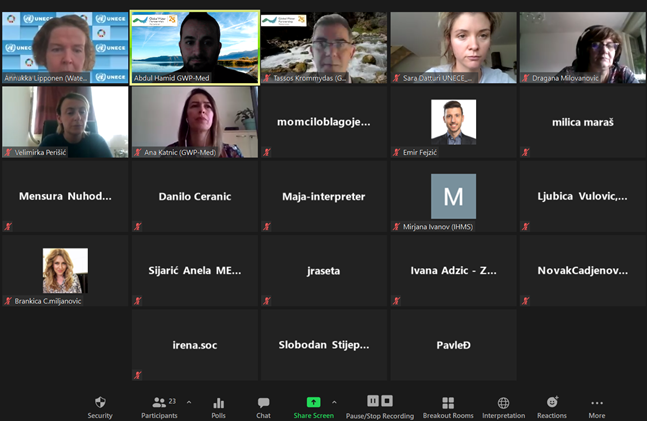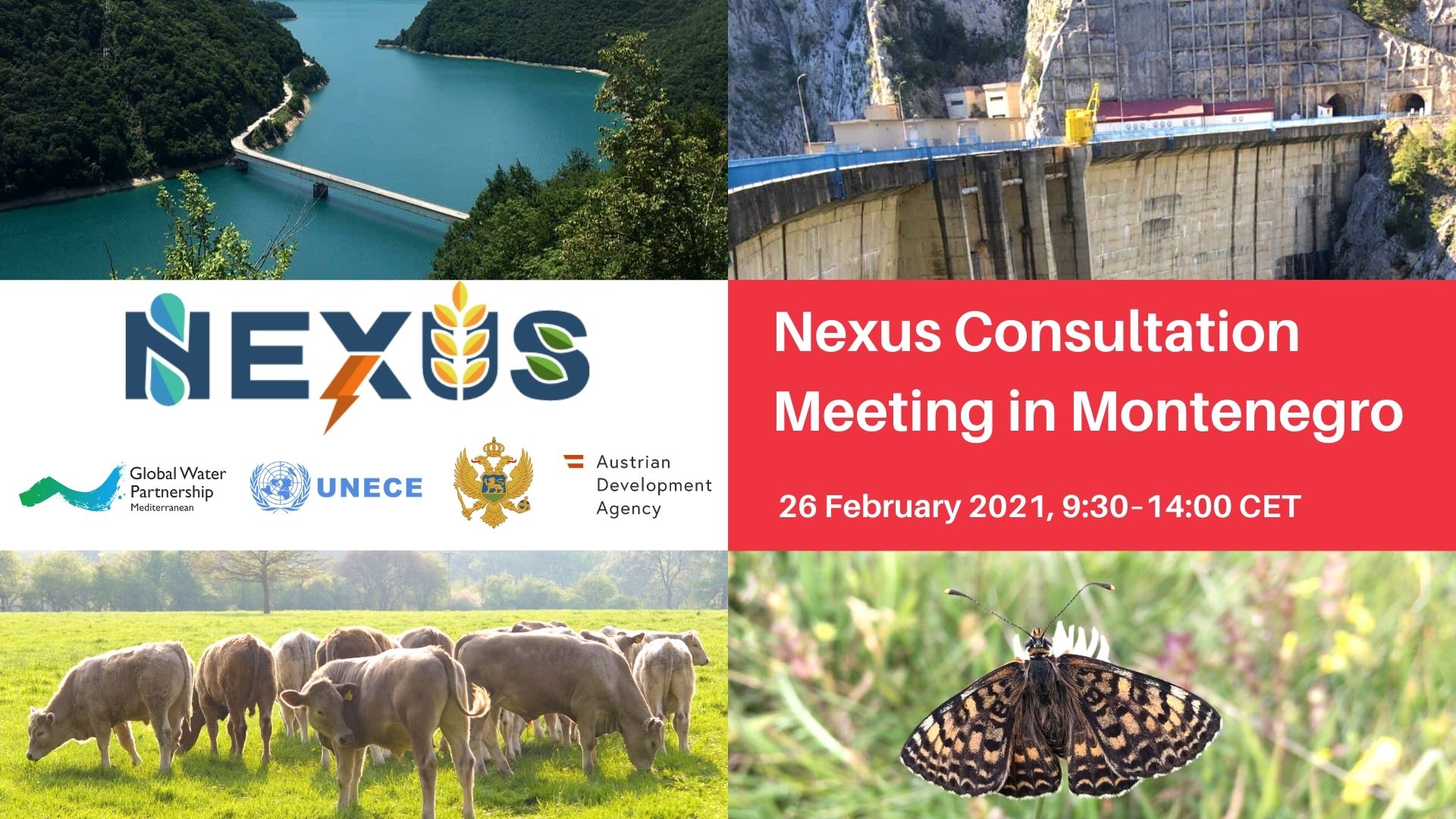On February 26, representatives and stakeholders from Montenegro’s water management, energy, economy/investment, agro-forestry, hydrometeorology and environment protection sectors, representing Ministries, Institutes, public bodies, agencies, power companies and international organisations gathered at the online national consultation on the Drina River basin Nexus Assessment Phase II. The meeting focused on shaping directions for modelling future energy and water scenarios and identifying formalization options for flow regulation, as well as ways to inform the on-going transboundary intersectoral dialogue involving also the other two Riparians, Bosnia and Herzegovina and Serbia.
The consultation was convened by GWP-Med and the UNECE, in cooperation with the Ministry of Agriculture, Forestry and Water Management, the Ministry of Ecology Spatial Planning and Urbanism, and the Ministry of Capital Investment, in the framework of the SEE Nexus project financed by the Austrian Development Agency (ADA).
Mr. Tassos Krommydas, Senior Programme Officer for GWP-Med, presented the project’s aims and scope and in particular the activities being implemented in the Drina basin. Mr. Emir Fejzić of KTH Royal Institute of Technology, presented the integrated water-energy model being developed for the Drina river basin to explore the role of hydropower and other renewables under different scenarios. Ms. Velimirka Perisic from the power utility EPCG provided analytical information about hydropower plants in the country and future developments planned, and expressed EPCG’s interest in the project and willingness to provide related specific energy sector data.

Mr. Momčilo Blagojević, General Director of the Directorate for Water Management in his intervention expressed his appreciation to the Nexus team for providing valuable insights and suggestions for the integrated management of Montenegro’s natural resources that will also contribute to its sustainable development. He also stressed that the Nexus project will enhance the negotiations between the Drina countries on implementing specific actions under the Strategic Action Programme and policies related to sectors.
Ms. Annukka Lipponen, Environmental Affairs Officer in UNECE, analysed the various flow regulation related needs, including environmental flows and their importance. Ms. Milica Maraš, Directorate for Water Management, Ministry of Agriculture, Forestry and Water Management informed participants on the Ministry’s approach to River Basin Management Plans while Ms. Jovana Rašeta, from the Sava Commission Secretariat, noted that in order to achieve successful management of renewables in the basin, it is essential to explore the mutual benefits for all countries. She continued by adding that the Nexus approach can play a catalytic role in that regard.
Mr. Pavle Đurašković from the Hydrometeorological Institute noted that in the Drina basin, water's ecological dimension needs to be the entry point under a Nexus approach.
Following discussions among participants on approaches to the integrated management of resources, Ms. Lipponen presented UNECE’s framework and methodology for identifying Nexus solutions and investments and Mr. Krommydas explained how the Project can assist the countries by supporting the preparation of a Project Document for a Nexus-related, transboundary and cross-sectoral solution to be identified in the context of the Project’s activities in the basin.
Mr. Novak Čađenović GWP-Med Senior Programme Officer, presented an example of a Nexus solution, the biomass pilot activity in the Lake Skadar/Shkodra National Park implemented under the Drin Project, with multiple benefits for water management, environment and heat generation.
The SEE Nexus Project (“Promoting the Sustainable Management of Natural Resources in Southeastern Europe, through the use of the Nexus Approach”) is funded by the Austrian Development Agency (ADA), the operational unit of Austrian Development Cooperation and is implemented by Global Water Partnership-Mediterranean (GWP-Med) in partnership with the United Nations Economic Commission for Europe (UNECE).
